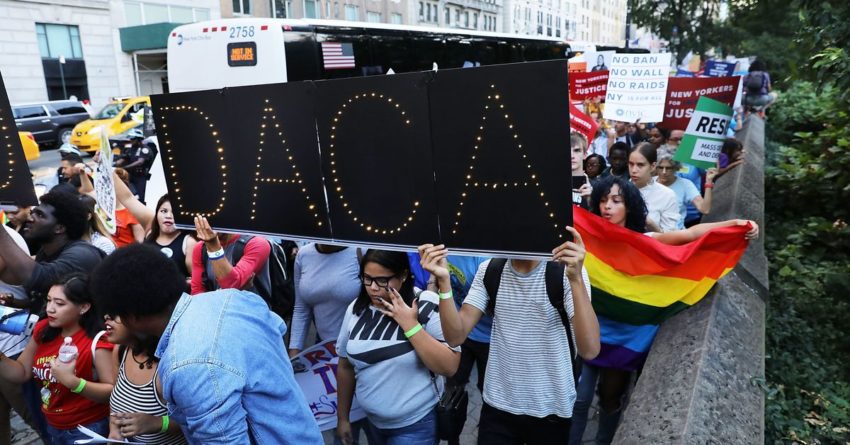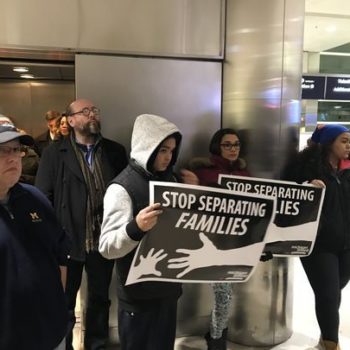
Share On Social!
Fear of deportation is a rising concern among many Latinos in the United States.
People born here and people who have given up everything to move to the U.S., have to worry about being forced to leave the country after the Trump Administration rescinded the Deferred Action for Childhood Arrivals (DACA) program and proposed use of “expedited removal.”
How does this fear impact a person’s mental health?

Changes Coming Fast and Furious
The Trump Administration is proposing more usage of “expedited removal,” as well as reduced family immigration and eliminating the Visa Lottery, The Nation reports.
Expedited removal allows government officials to remove undocumented immigrants without allowing them to go before a judge. Since 2002, the law has only been used for immigrants who have been in the U..S for less than two weeks and within 100 miles of the border, the New York Times reports.
In the past, guidelines for deporting immigrants focused mainly on those who posed as a security threat. Under the new directives, the government “no longer will exempt classes or categories of removable aliens from potential enforcement,” according to the Times.
Plus, DACA was rescinded in 2017, impacting up to 3.6 million DREAMers.
Immigration Policy’s Impact on Mental Health
Sadly, these changes add to the big-time stress of migration.
Many Latino families face tough finances and difficult travel before and during migration to the United States. Many Latino children are separated from parents. After migrating, they face language issues, discrimination, and undocumented status, according to a Salud America! research review.
This contributes to a large proportion of Latino immigrants having depressive symptoms and anxiety.
Mental illness rates among children of undocumented immigrants “double when facing deportation,” the Independent reports.
“Expanding deferred action, or providing more permanent protection, to the millions of unauthorised immigrant parents who do not meet the current DACA eligibility criteria could equally promote the well-being of their children,” Duncan Lawrence, executive director of the Stanford Immigration Policy Lab, told the Independent.
Immigration Policy’s Impact on Foster Care
As immigration policy changes, foster care cases might increase as children have to go with their parents or enter foster care.

Latino children already makeup a majority of fosters cares around the U.S. ABC News reported that Latino kids made up a much larger share of kids in the care of the Los Angeles County Department of Child and Family Services than their share of the local population.
This was the case for children of an undocumented immigrant in Kentucky. The children’s sole provider was their father who came from Mexico when he was 16. The children are American citizens and have the decision to pay a sufficient amount of money to get paper work and travel funds to allow them to travel to Mexico with their father or be placed in foster care.
“The children are having a hard time without Antonio,” the children’s aunt and temporary caregiver told the Detroit Free Press. “The youngest two cry at night and ask for him. Anthony, the oldest son, acts out at school.”
How Can You Help?
The American Friends Service Committee suggests five things:
- Learn about immigration. Spend some time with your community learning more about the history of immigration in the United States.
- Connect with immigrant community. Connect with immigrant communities and find out how you can best support their existing efforts.
- Help those in detention. Ensure no inhumane treatment of immigrants occurs in the United States.
- Visit the border. Volunteer in the region.
- Advocate for humane reform. Join in the immigration debate.
How will you get involved?
Explore More:
Healthy Families & SchoolsBy The Numbers
142
Percent
Expected rise in Latino cancer cases in coming years



